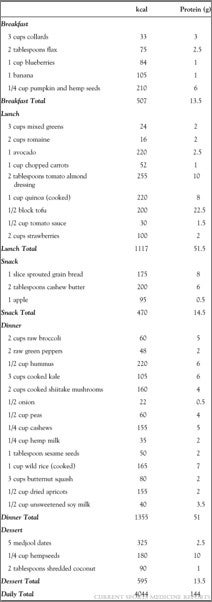
For years, most athletes believed it impossible to eat a plant-based diet and be successful, especially at the elite level. Eating a plant-based diet has gained more popularity in the general population and a growing number of athletes are eating a plant -based diet and achieving success. The list of professional athletes who eat vegetarian or vegan includes a NASCAR driver, body builders, NFL players, and professional tennis players among others. The growing popularity of plant-based diets in athletes has been supported by continued research and a growing number of plant-based nutrition guidelines. The latest article suggests that plant-based diets may be even better than a traditional diet that includes meat proteins when it comes to increased endurance and reduced recovery time.
Flexitarian, Vegetarian or Vegan?
Before we go any further we should clarify the definitions of a few common terms. For a more complete list check out this glossary of terms. Most importantly, here are the basic differences between the three most common plant-based diets.
Flexitarian – a predominantly plant-based diet, but occasionally eats eggs, dairy, fish or foul.
Vegetarian – a plant-based diet that may include eggs and/or dairy products.
Vegan – a completely plant-based diet that does not include any animal-based products. In addition to meat, eggs and dairy, includes lard, gelatin and in some cases honey.
Sources: 1 - EatRight.org 2 - VeryWellFit.com
Plant-Based Diet Myths Debunked
Myth 1: Plant foods do not supply enough protein
Recent research shows that plant-based diets can meet the protein demands of athletes nearly 100% of the time. The key seems to be proper meal planning to ensure you are consuming enough protein. A typical range of protein consumption is 1.2 to 2.0 g/kg per day and a plant-based diet that contains a variety of plant protein sources can meet this need.
Myth 2: Plant proteins must be paired to create complete proteins
Current research makes no mention of having to combine proteins (ex.: pairing beans and rice) to make complete proteins to achieve appropriate nutrition. The larger key seems to be to utilize a wide variety of proteins to ensure sufficient consumption the full range of amino acids (protein building blocks).
Myth 3: Focus on only protein rather than a balanced diet
As with a meat-based diet, it is important to achieve a balanced diet that provides all the necessary macronutrients (carbohydrates, proteins, and fats) and micronutrients (ex.: Iron, Zinc, Vitamin D). While ensuring you ingest enough protein is important, this should not be the singular focus. See Myth 6 - the more challenging aspect of eating a plant-based diet seems to be consuming enough of certain micronutrients that are critical to normal function and fitness.
Myth 4: All sugars are the same
All sugars are not the same, just ask the glycemic index. The glycemic index is a relative ranking of carbohydrates in foods according to how they affect blood glucose levels. The goal when eating is to consume foods with a low glycemic index, meaning they are more slowly digested and absorbed keeping blood sugar levels more stable (preventing blood sugar spikes is a good thing). Foods are categorized by low (55 or less), moderate (56-69), and high (70+). Plant-based diets are typically much higher in low glycemic, high fiber foods making them more effective in minimizing blood sugar spikes and crashes.
Myth 5: All vegetarian diets are healthy
No, all vegetarian diets are not healthy. Simply removing animal-based proteins from your diet and adding more of your favorite carbohydrates does not equate to a balanced diet, even though it is technically considered vegetarian. Balanced plant-based diets take planning and variety to be successful. Diets that are not carefully planned can lead to deficiencies in several micronutrients including Iron, Zinc, Calcium, Vitamin B12, Vitamin D, Iodine and Omega-3 fatty acids.
Source: Dietitians of Canada
Sample Meal Plan
This one of several meal plan examples provided in, Fueling the Vegetarian (Vegan) Athlete (Fuhrman & Ferreri, 2010). Please review the entire article for an understanding of how to develop a balanced plant-based diet.

Resources
There are a growing number of resources available on the internet from a variety of sources. I have linked a few science and dietitian developed resources below, but there are many, many more websites, books and self-help resources that have been developed by others. If you’re interested in improving your plant-based diet or getting started please be sure the resources you’re using are science-based and compiled by an appropriate expert. Even better, if you can, engage a nutritionist or dietitian as needed to get you started.
Position of the Academy of Nutrition and Dietetics: Vegetarian Diets (2016)
Vegan Diets: Practical Advice for Athletes and Exercisers (2017)
DISCLAIMER: The content contained in this blog is for informational purposes only. The content is not intended to be a substitute for professional medical advice, diagnosis or treatment. Always seek the advice of your physician, athletic trainer, or other qualified health provider with any questions you may have regarding a medical condition. If you think you may have a medical emergency, call your doctor or 911 immediately.

